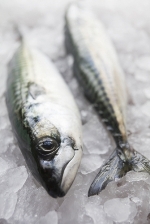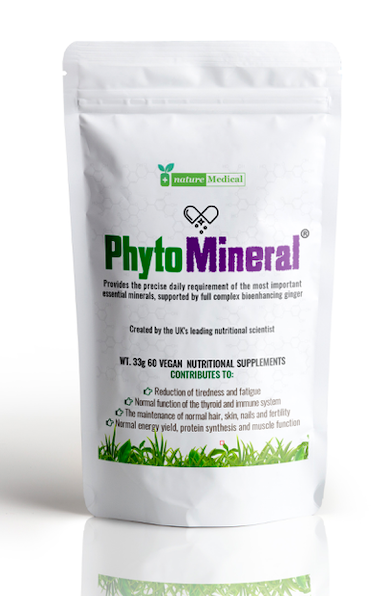






|
|
.
Trace, minerals, metals, salts and cancer
|
Sub optimal levels of minerals are becoming increasingly
commonplace as countries get richer because the diversity of the typical diet is
shrinking. Today, 75% of the world’s
food supply comes from only 12 plants and five animal species. What’s more, in
the race to get large quantities of affordable food, modern intensive farming,
over cleaning and processing are depleting minerals from many foods on the
shelves. Minerals
are needed for normal and the production of
anti-oxidants enzymes which protect us from toxins and carcinogens which cause
cancer as well as chronic degenerative
diseases such as dementia, heart disease, arthritis, cancer and premature skin
aging. Normal
levels of essential minerals are vital for multiple metabolic pathways
including:
|
- thyroid and other hormone formulation
- carbohydrate and energy-yielding
metabolism
- cognitive and brain function
- testosterone, libido, fertility, sperm
formation and reproduction
- metabolism of vitamins and iron
transportation
- fatty acids and protein synthesis and
muscle function
- maintenance of normal bones, teeth, hair,
nails and skin
- maintenance
of the nervous system and vision
- function of the immune system
 Manganese, copper and zinc are dietary trace elements,
classified as antioxidants because they are essential for the production of
superoxide dismutase (SOD) and selenium is also essential for glutathione
peroxidase. Together with catalase, these form enzymatic defense against
carcinogenic free oxygen radical reduction metabolites. These
three enzymes are responsible for the end stage of mopping up of the free
radicals before they have time to damage the DNA.
Manganese, copper and zinc are dietary trace elements,
classified as antioxidants because they are essential for the production of
superoxide dismutase (SOD) and selenium is also essential for glutathione
peroxidase. Together with catalase, these form enzymatic defense against
carcinogenic free oxygen radical reduction metabolites. These
three enzymes are responsible for the end stage of mopping up of the free
radicals before they have time to damage the DNA.
Research from animal studies has shown that there is an
increased risk of cancer in the presence of cooper, manganese, seleniun or zinc
deficiencies particularly under conditions of high carcinogenic attack where
more SOD is needed. Zinc is abundant in many food sources and tends to
accumulate more in the prostate, and one laboratory study suggested that this
may offer some protection against prostate cancer cell growth.
Zinc
is required in adequate amounts although in excess, is likely to be harmful. This was highlighted in
the Health Professionals Follow-Up Study
(HPFS). In this study, 50,000 health professionals were recruited between 1986
and 2002, from several medical fields. They were required to provide information
on their eating, smoking and drinking habits, including the type of alcohol they
preferred and supplements they took. During the study, 3,348 cases of prostate
cancer were diagnosed. Further analysis of the diet and type of cancer showed
that men who took normal amounts of zinc had the
normal incidence of prostate cancer but those who took supplemental zinc at
levels of more than 100mg/day or for long durations were more than twice as
likely to develop advanced prostate cancer. Zinc
intake is recommended to be no more than
15 mg
zinc per day.
 Selenium
has been shown to slow the progression of cancer cells when it was added to
their culture medium in the laboratory. This was affect was also independent of
the enzymatic SOD pathway, indicating that selenium on its own may have a direct
anticancer effect. In humans two large studies in 1980 and 1990 showed that a
low selenium status was associated with an increased risk of developing cancer.
They also showed that in patients with selenium deficiency, the cancer they
developed were more likely to be aggressive and fatal. The Harvard Health
professional survey, for example, linked low selenium status (measured on
toenail clippings!) with higher rates of aggressive prostate cancer. Both Finish
and Taiwanese studies have linked blood lower levels of selenium with higher
rates of lung and a liver cancer called Hepatocellular carcinoma (HCC). In
China, where the incidence of HCC is high, the inhabitants of one village were
supplemented with sodium selenite whilst another 5 villages were given simple
salt. After 6 years, involving over 130,000 people, there was a 35% reduction in
the HCC rate in the selenium supplemented village but no change in the others.
Selenium
has been shown to slow the progression of cancer cells when it was added to
their culture medium in the laboratory. This was affect was also independent of
the enzymatic SOD pathway, indicating that selenium on its own may have a direct
anticancer effect. In humans two large studies in 1980 and 1990 showed that a
low selenium status was associated with an increased risk of developing cancer.
They also showed that in patients with selenium deficiency, the cancer they
developed were more likely to be aggressive and fatal. The Harvard Health
professional survey, for example, linked low selenium status (measured on
toenail clippings!) with higher rates of aggressive prostate cancer. Both Finish
and Taiwanese studies have linked blood lower levels of selenium with higher
rates of lung and a liver cancer called Hepatocellular carcinoma (HCC). In
China, where the incidence of HCC is high, the inhabitants of one village were
supplemented with sodium selenite whilst another 5 villages were given simple
salt. After 6 years, involving over 130,000 people, there was a 35% reduction in
the HCC rate in the selenium supplemented village but no change in the others.
These data prompted the designed and
initiation of an excellent double-blind randomised trial in the USA called the
Nutritional Prevention Study. It recruited 1312 individuals with a history of
skin cancer and prescribed either placebo or 220 micrograms of selenium a day.
The primary aim (end point), was to see if dietary selenium supplementation
could reduce the risk of recurrent skin cancer. There was no difference in the
number of skin cancers between the selenium or placebo group. However, when the
data was analysised in more detail, a significantly lower level of lung, bowel
and prostate cancer was seen in the selenium group and this lived up to robust
statistical evaluation. Several large ongoing prostate prevention studies
including the SELECT study are now underway across the world to try and
confirm these findings and fine tune the optimal selenium dose required. Many
suspect however that the people who would benefit from selenium supplements are
those with a dietary deficiency in the first place for example those living in
area with low soil levels. Selenium daily
intake is
recommended to be 60-75mcg/day (No more than 200mcg/day).
Calcium.
Four prospective cohort studies,
relating to calcium and prostate cancer, have been published. Two recommended a
mean calcium intake between 1330-1840mg/day and showed no benefit or risk or
associated risk. Two others, one involving 86,404 men in the CP II Nutrition
cohort, with mean intake of >2000mg/day from food and supplements, actually
showed a significantly higher rate of prostate cancer. Five of nine further
questionnaire surveys associated high intake of dairy food with an increased
risk of prostate & breast cancer but interpretation of these was complicated the
fact that high diary was associated with high fat intake. The detrimental effect
of excessive calcium is thought to lay in the finding that high dietary calcium
can reduce blood and cellular vitamin D levels. As will be described in more
detail below Vitamin D has demonstrated anticancer effects via its
anti-proliferative properties and these benefits are therefore lost with calcium
excess. Recommended dietary calcium intake is 1000mg/day for women and 800mg / day for men.
When considering a calcium intake it would be sensible to also focus on vitamin
D and gut health.
 Advice on healthy dietary
mineral intake
Advice on healthy dietary
mineral intake
-
Caution should be taken with some high dose dietary supplements
-The exception is Phytomineral
which has the precise daily amounts - which avoids deficiency but also
ensures no more than is needed and is our recommended supplement
-
Sea food such as sardines, prawns,
shellfish, crab and crab are good sources. some oily fish contains selenium but this
may well be bound to the mercury and made inert.
-
Wheat can be a good sources but it
depends on were it was grown, USA wheat is relatively high in selenium but
the same cannot be said for European varieties because of the low levels in
most European soils.
-
Meat including liver contain different minerals but
best that intake is limited to 3-4 times a week.
-
Nuts - handful of brazil nuts a day is likely to be helpful
particular in areas of the world with low selenium in the soil. Other nuts
and pumpkin seeds are good sources.
-
Calcium supplements on their own may
well have a detrimental effect on cancer but combined with Vitamin D are
useful and also treat and prevent bone loss.
-
Foods high in calcium include
regular and slimmed milk, cheese (particularly cheddar), low fat and regular
yogurt, canned fish with bones (sardines, salmon) and spinach.
-
Soya products often have calcium
added. Low quantities are also present in salads, fruit and vegetables.
 Manganese, copper and zinc are dietary trace elements,
classified as antioxidants because they are essential for the production of
superoxide dismutase (SOD) and selenium is also essential for glutathione
peroxidase. Together with catalase, these form enzymatic defense against
carcinogenic free oxygen radical reduction metabolites. These
three enzymes are responsible for the end stage of mopping up of the free
radicals before they have time to damage the DNA.
Manganese, copper and zinc are dietary trace elements,
classified as antioxidants because they are essential for the production of
superoxide dismutase (SOD) and selenium is also essential for glutathione
peroxidase. Together with catalase, these form enzymatic defense against
carcinogenic free oxygen radical reduction metabolites. These
three enzymes are responsible for the end stage of mopping up of the free
radicals before they have time to damage the DNA.
 Selenium
Selenium




